NSYSU faculty and students study Japan's blue carbon development to advance collaborative learning and net-zero actions
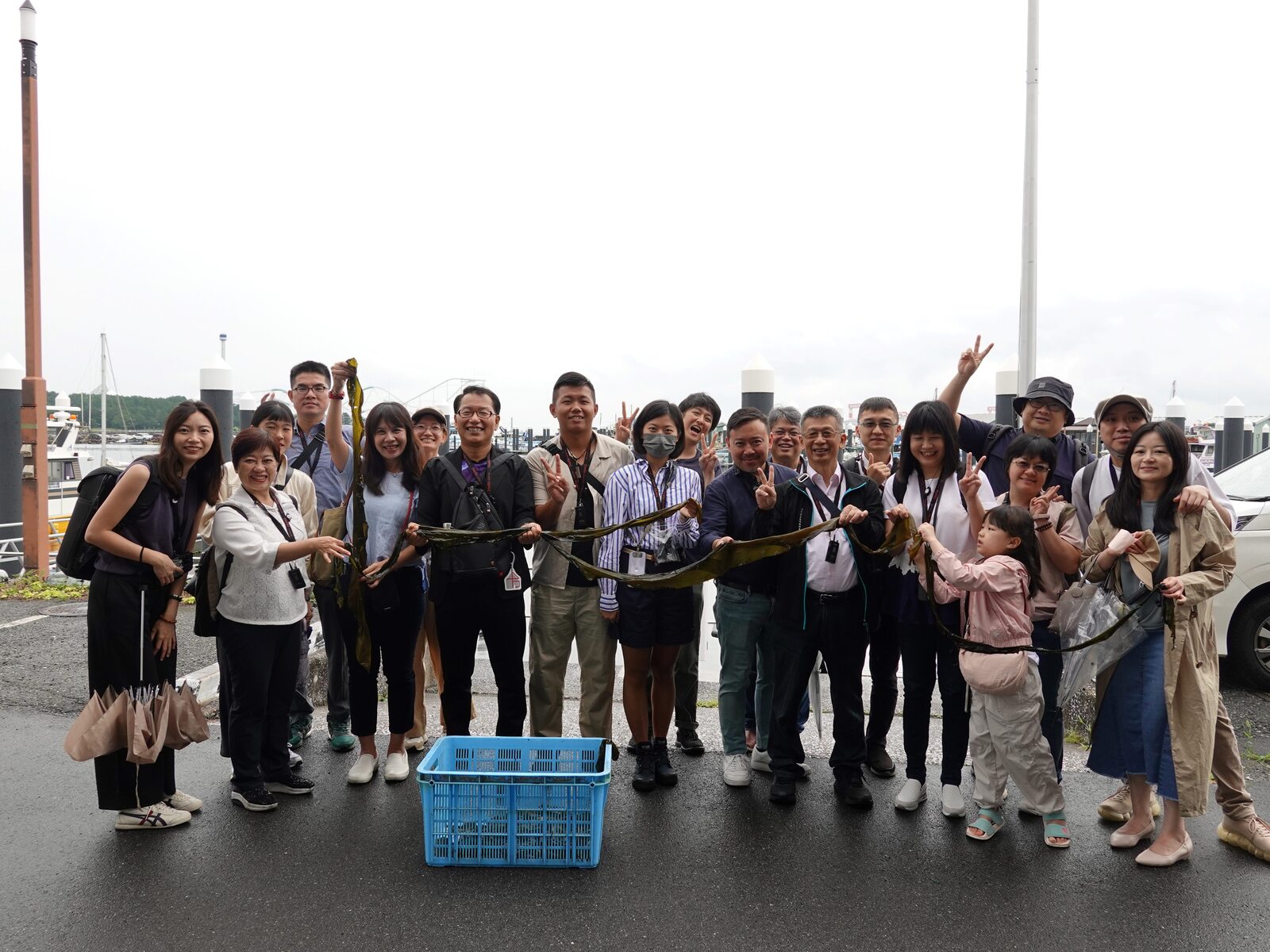
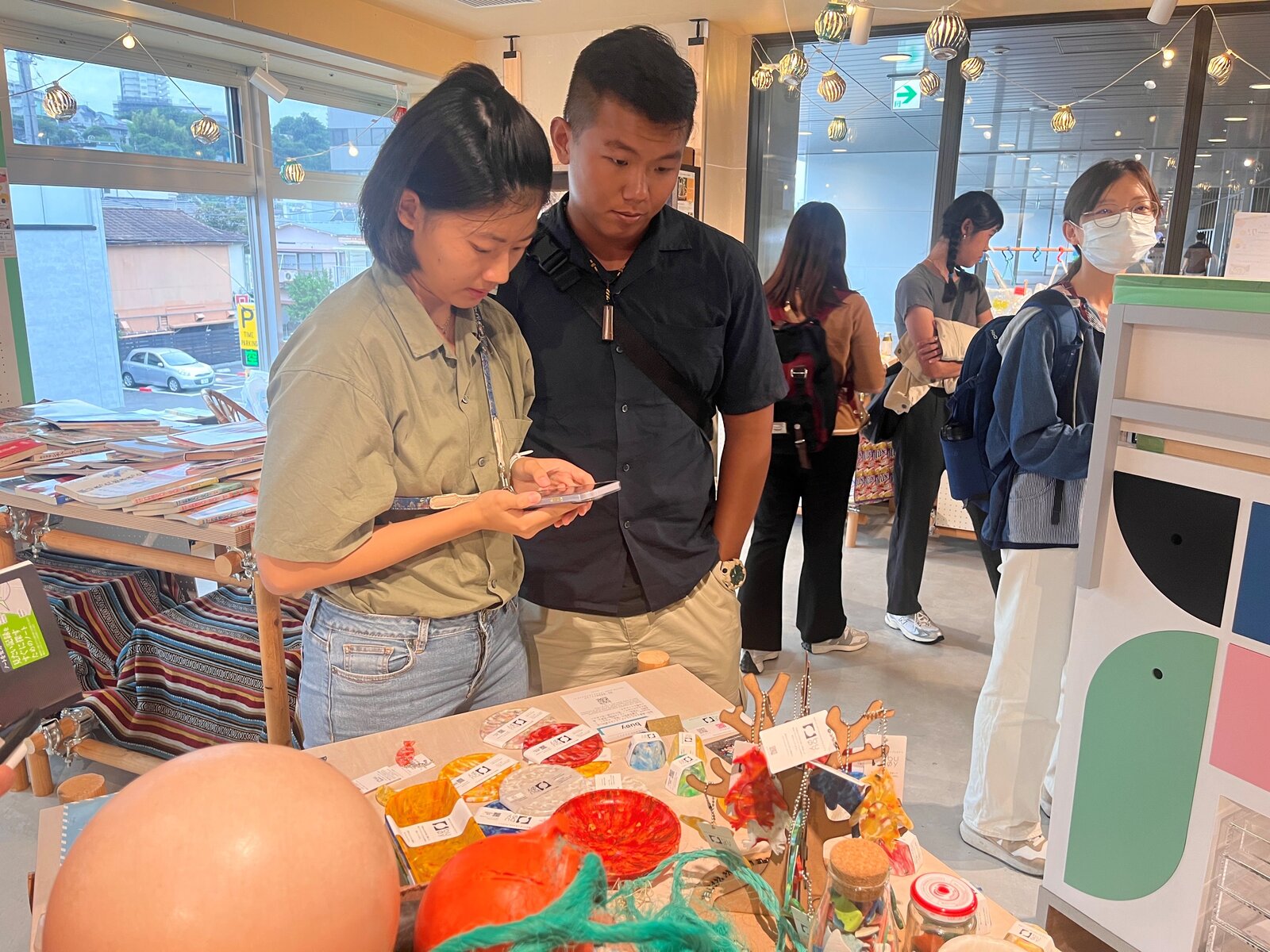
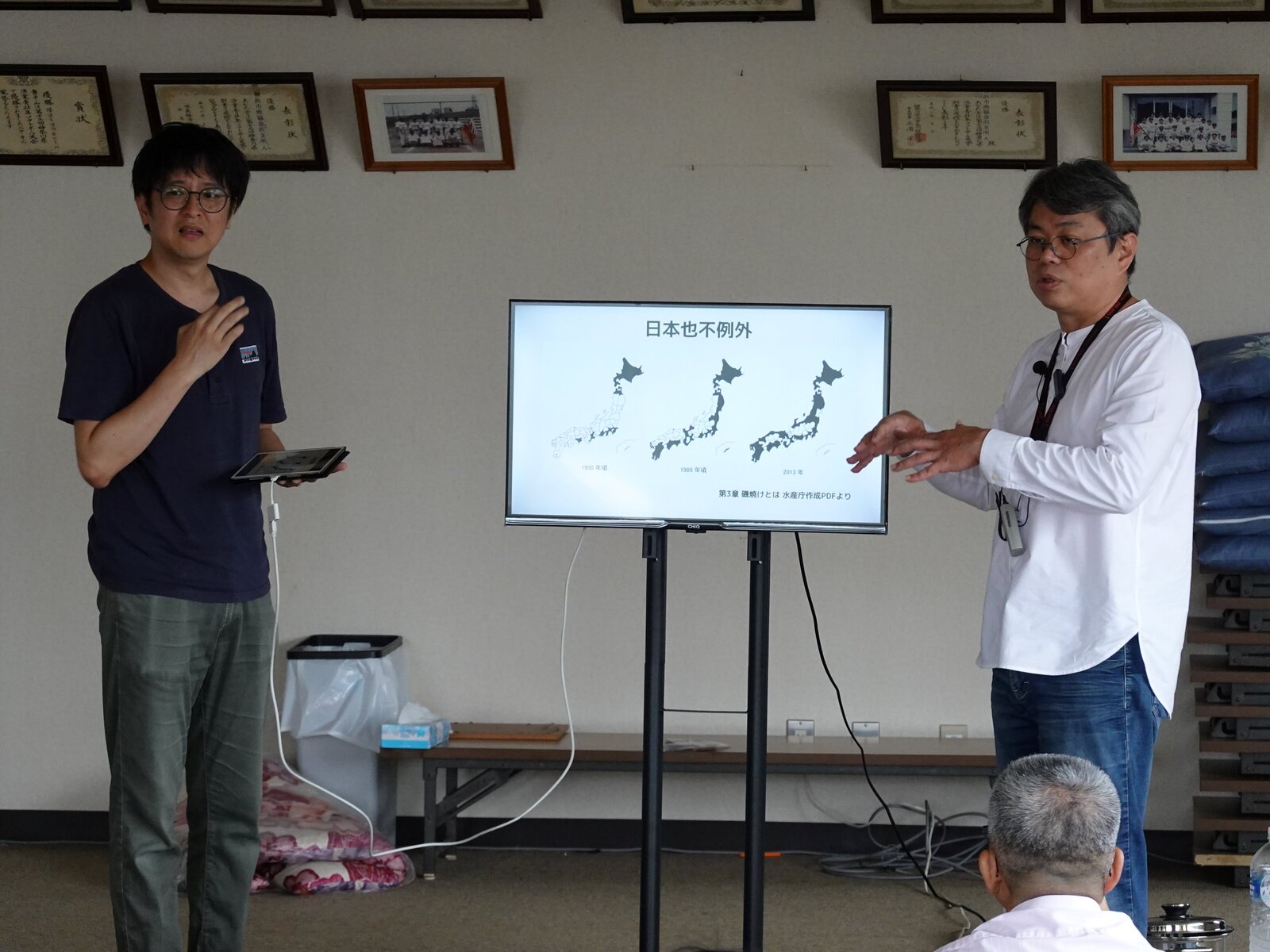

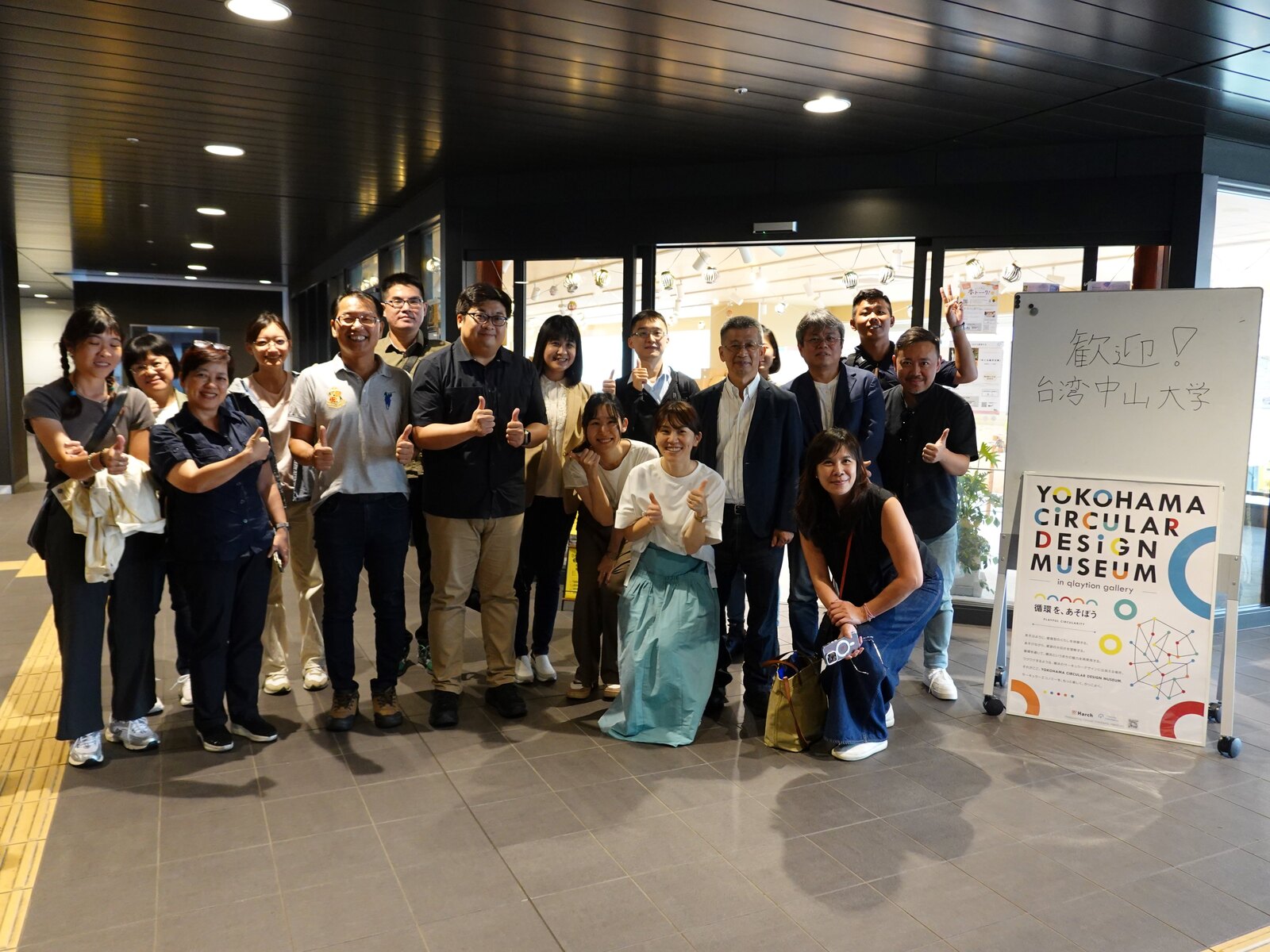
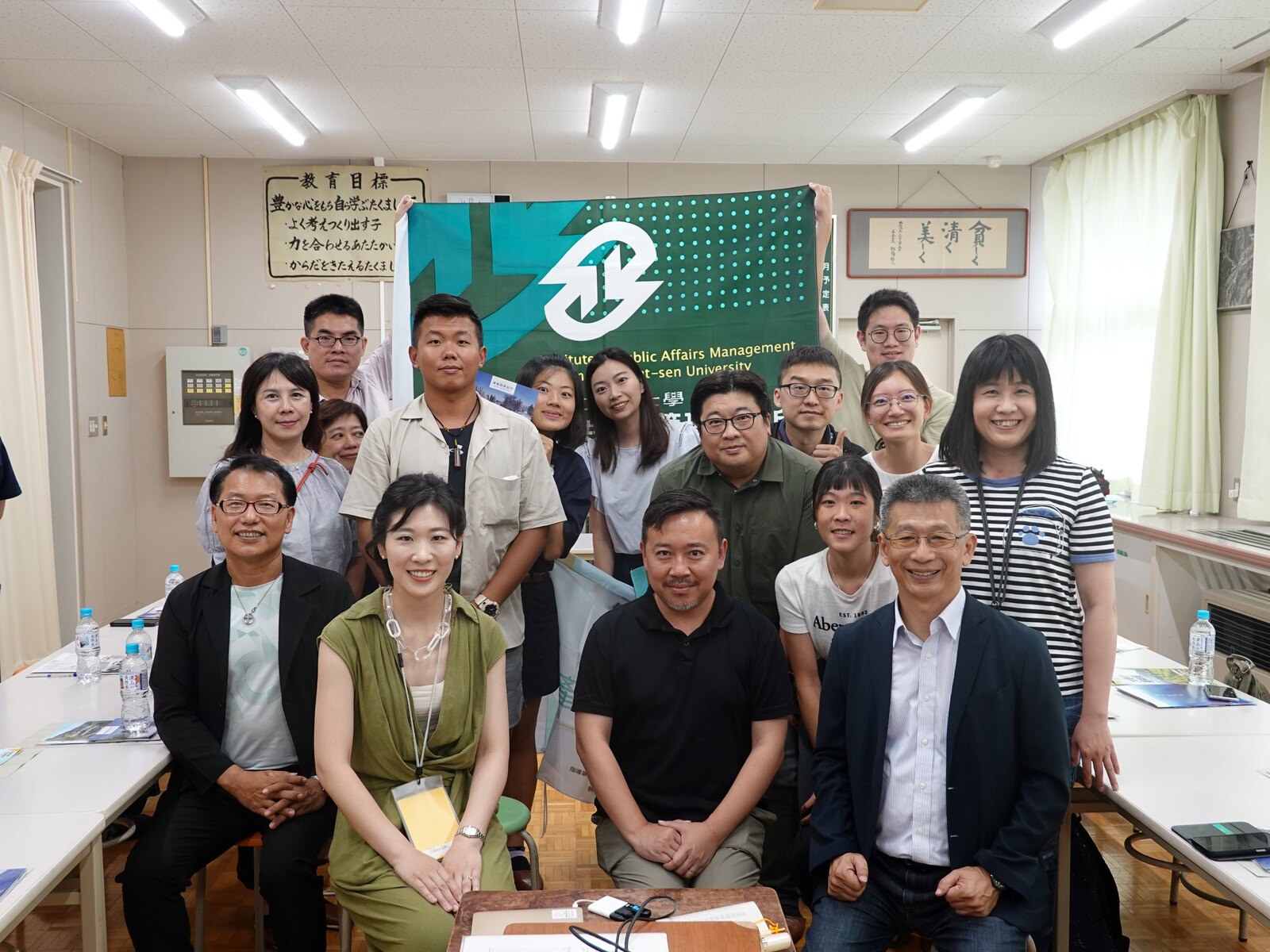
2025-02-25
The development and implementation of blue carbon initiatives offer significant opportunities for enhancing marine carbon sinks and advancing global carbon neutrality. This trend has prompted governments, industries, and academia worldwide to launch blue carbon restoration efforts. As part of the "Corporate Sustainability and Regional Revitalization" initiative under the Office of Academic Affairs' Higher Education SPROUT Program Collaborative Learning Practice Plan, Professor Jui-Kun Kuo and Associate Professor Sang-Ju Yu from the Institute of Public Affairs Management at National Sun Yat-sen University (NSYSU) led a student team on a learning exchange to Japan.
The team's itinerary included visits to Circular Yokohama, a platform dedicated to promoting net-zero initiatives, and Sachiumi Heroes at Kanazawa Fishing Port, known for advancing blue carbon efforts through kelp farming. The team also engaged with officials from Yokosuka City Hall's Urban Strategy Division and held discussions with the Mayor and Council Speaker of Tsunan Town in Niigata to explore local decarbonization strategies, including forest restoration projects that support carbon rights and sustainable agriculture.
These interactions with Japanese government and industry representatives provided NSYSU faculty and students with a deeper understanding of how public and private sectors in Japan collaborate to create natural carbon sink ecosystems, all aimed at achieving the "2050 Net-Zero Carbon Emissions" goal.
The faculty and students of NSYSU's Collaborative Learning team visited Harch Co., Ltd., the organization behind Circular Yokohama in Yokohama City, to exchange ideas on achieving net-zero carbon emissions. A representative from Circular Yokohama highlighted the city's role as a designated national decarbonization model, emphasizing its efforts in innovative initiatives such as power offsetting and large-scale tree planting.
To foster collaboration across sectors, Circular Yokohama hosts seminars, workshops, exhibitions, and events centered on circular economy themes. These activities aim to bring together experts from various disciplines, businesses, and the public, cultivating sustainable literacy with a focus on net-zero emissions, carbon reduction, and circular regeneration.
"Digital sustainability is the goal we are striving to achieve," said Ms. Matsuda, who leads efforts in promoting B Corporations and sustainable operations. She emphasized that Circular Yokohama is an internationally certified B Corporation™. To offset the carbon emissions from its electricity usage, the company purchases J-Credit and encourages employees to work remotely, offering subsidies for using green electricity at home and implementing food waste sorting practices.
Additionally, the company conducts an annual carbon emissions inventory and collaborates with the Forestry Association of Nagano Prefecture. By aligning their carbon reduction goals with national calculation methods, they determine the number of trees needed to be planted each year, aiming to minimize the environmental impact of their business activities.
To gain insights into Japan's blue carbon restoration efforts, the Collaborative Learning team visited Sachiumi Heroes at Kanazawa Fishing Port and Yokosuka City Hall to conduct on-site investigations into the environmental importance of blue carbon ecosystems. Tatsunori Tomimoto, founder of Sachiumi Heroes and known as the "Konbu Prince," highlighted that rising sea temperatures due to climate change have led to ocean desertification. He emphasized that while kelp farming provides additional economic benefits for local fishermen, it also plays a crucial role in sustaining marine ecosystems, lowering sea temperatures, and mitigating climate change—factors that inspired his dedication to the industry.
Meanwhile, Mr. Tagami from Yokosuka City Hall's Urban Strategy Division addressed the alarming desertification in Sagami Bay, where rocky reef kelp beds have decreased by 98.5% between 2006 and 2022. In response, the city began planting artificial seagrass beds on rocky surfaces three years ago as part of its ongoing efforts to restore marine ecosystems.
The Collaborative Learning team visited official institutions such as Yokosuka City Hall and Tsunan Town in Niigata Prefecture to gain deeper insights into how local governments, businesses, and fisheries cooperatives collaborate to advance net-zero transformation. Mr. Tagami from Yokosuka City Hall's Urban Strategy Division explained that the city actively partners with private enterprises, co-funding contract personnel to support policy implementation. For seagrass restoration projects, the city develops execution plans and commissions external organizations, such as fisheries cooperatives and specialized companies, to carry out the work.
During the visit, students inquired about ways to enhance public participation and provide economic incentives. Mr. Tagami introduced the city's environmental points app, which rewards residents with points for eco-friendly actions, such as installing solar panels or recycling insulation materials. These points can be redeemed for products. He also highlighted the city's support for the community-led Yokosuka City Global Warming Countermeasure Regional Council, where stakeholders collaborate to develop strategies to combat global warming, with the outcomes incorporated into policy planning.
The team also visited Tsunan Town in Niigata Prefecture, a rural community with a population of just 8,800, to explore regional revitalization efforts and discuss forest-based green carbon development with Mayor Haruka Kuwabara. Mayor Kuwabara highlighted that Tsunan Town, primarily an agricultural community, has around 70% of its land covered by privately owned forests. By leveraging its abundant natural resources, including high-quality water and extensive snowfields, the town has actively pursued energy conservation and carbon reduction initiatives.
A decade ago, Tsunan Town began developing forest carbon sinks, which now absorb an average of 600 tons of CO₂ annually. Over the past ten years, the town has sold 5,810 tons of carbon credits, using the proceeds to enhance local agricultural technology and provide subsidies for farmers to purchase smart farming equipment, further promoting sustainable farming practices.
Sang-Ju Yu, operations manager of the Center for Carbon Research and Solutions at NSYSU and one of the Principal Investigators of the Collaborative Learning Plan, noted that Japan's experience illustrates how blue carbon restoration can be reimagined as an innovative "environmental regenerative fishery" rather than a traditional fishery practice. This approach not only creates economic value but also offers a viable solution for marine ecosystem conservation and climate change mitigation. He highlighted that the Japanese government actively supports startups in kelp farming and related research. However, Yu emphasized that restoring marine carbon sinks is a complex endeavor that requires careful consideration of methods and site selection to avoid disrupting the natural ecosystem.
Professor Jui-Kun Kuo, Associate Dean of the College of Management at NSYSU, expressed admiration for Yokosuka City Hall. Despite being a grassroots local government serving a population of 330,000, the city effectively maximizes its limited resources and personnel to develop and implement strategies aligned with national net-zero carbon goals. Their ability to integrate these initiatives into both policymaking and daily life is commendable.
Yu further remarked that the dedication of both Yokosuka City and Tsunan Town to net-zero initiatives is inspiring, regardless of their population size or geographic location. He highlighted Tsunan Town's success in leveraging its vast forests and agricultural focus to develop smart agriculture and carbon credit trading, rather than using its rural workforce limitations as a constraint.
The visit was both enriching and tightly scheduled. Through independent learning and on-site visits, the faculty and students gained in-depth insights into Japan's approaches to blue carbon restoration and carbon reduction policies. The official visits also offered valuable lessons in international exchange and etiquette, broadening global perspectives and enriching the participants' knowledge and experience.
